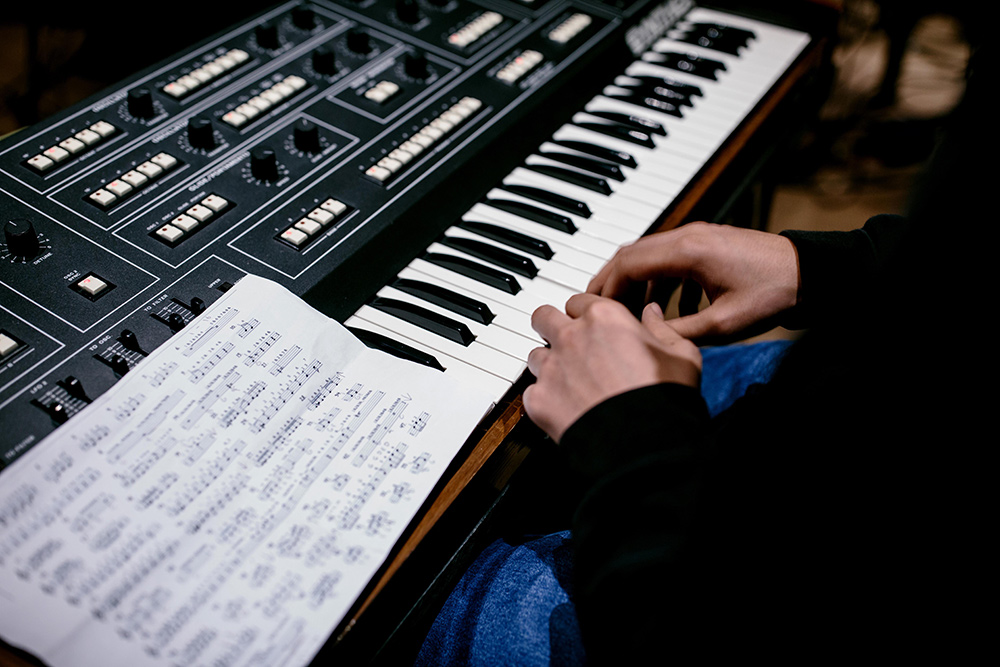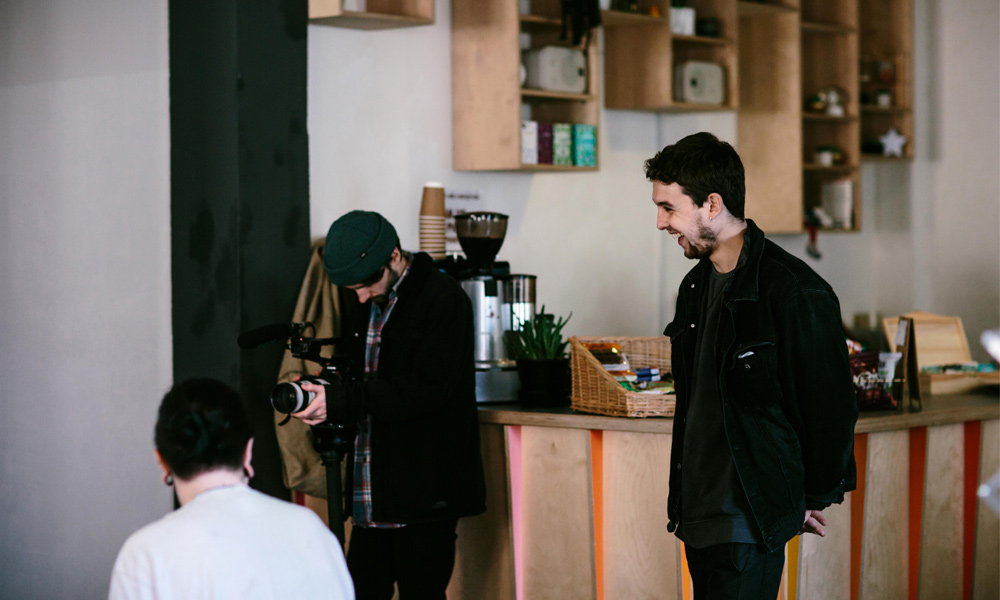Crafting the soundscape for screen, be that music or sound, has long been a highly sought-after career path and our BA (Hons) Music and Sound for Film & TV course is the perfect launchpad, but not many people realise how accessible it can be, or just how many doors it can open to jobs, connections and possibilities for creativity.
Here we uncover what’s it’s really like to pursue this pathway and why any aspiring composer should consider it.
1. You don't need to be an expert in music theory

For many years, the role of composer for screen was reserved to classically-trained musicians and even though the industry has seen a huge shift and seen more non-classical composers joining the fray, this mindset is still fairly prevalent.
While we cannot deny that music theory is invaluable to the modern composer, you are still 100% eligible to study this degree if you have little to no experience in it. During the three years on the course you will develop your knowledge and skills in composition and screen music, which will include theoretical studies.
There is also support for developing your theoretical knowledge outside of the course, and we encourage all students to do so.
2. You learn by doing from day one
We believe that no matter how much you know about something, you'll never truly learn how to do it until you get hands-on, and that philosophy is at the heart of this course.
From the very beginning of the degree you will embark on small, real-world projects composing music and creating sound design and Foley to briefs and working to real deadlines, looking to accrue credits to your name within the first year.
The object isn't to overwhelm you, but to help cement the lessons you are taught in a very real way, so that within the first few months you're confident in working to a brief, can produce high-quality work to a deadline and are familiar with film production cycles.
3. You get to work on real-world, high-profile projects
-3.jpg?width=1000&name=Sofia%20recording%20w%20dBs%20Pro%20(2-panel)-3.jpg)
dBs Pro on location in Sofia, Bulgaria recording an orchestra for an upcoming project
Alongside the real-world projects that you'll embark on throughout the course, you'll also have the opportunity to get involved with dBs Pro, our in-house commercial studio.
Some of the projects lead by dBs Pro have been worked on exclusively by Music and Sound for Film & TV students. Often these students are asked to pitch for the work on these projects, giving them real-world experience of ‘selling’ themselves to directors. Previous projects at dBs Pro have included scoring the Sony Entertainment Pictures film 'In The Cloud'.
As a dBs student, you will also have the opportunity to work on other high profile projects with other universities.
4. You'll study in a hub for film and television
A UNESCO City of Film, Bristol is home to the BBC's Natural History department, as well as Bottle Yard Studios, Netflix and Channel 4 to name a few, making it an excellent city for someone looking to compose for visual media.
We've built strong connections with post-production houses We Are Audio, Echoic Audio, Films @59 and Doghouse Productions, who provide Foley and Dubbing for various TV programmes.
Invada Studios, which was founded by Portishead's Geoff Barrow, is only a short walk from the campus and has hosted several interactive studio workshops for dBs students. Geoff and frequent creative collaborator Ben Salisbury have created a range of soundtracks for both film and TV. Most recently, they scored FX's show 'Devs', which also featured music from dBs graduate Suvi-Eeva Äikäs, who has worked on several projects alongside Invada.
5. There's loads of opportunities to collaborate
From year one you will embark on a drive to generate your own collaborations, often with students studying in film schools already connected with dBs Institute.
Your earliest collaborative partners will be the students at the Bristol-based film school, Screenology. Working alongside a variety of filmmakers there, you will have the chance to provide music and sound for a range of projects.

Your collaborations will not be limited to Screenology, and over the course of the three years you will work on projects with students from UWE, Plymouth College of Art, Bristol University, catalyst Film (Berlin) and Falmouth University, not to mention the creative partners you seek out yourselves in your second and third year of study.
6. You'll work on the projects you want to
As you progress through the course, you will become increasingly self-guided in your studies and we fully encourage that autonomy through how you're taught.
In your first year you will develop your skills as a composer and audio professional, in the second you will build on those skills and start to explore project management. Then in your third and final year, you will bring all those things together to develop, manage and realise a major project.
This means you get to work on exactly the kinds of projects you want to concentrate on, maybe you are really in to horror, or science fiction or documentaries. The canvas is yours to do with as you please.
FIND OUT MORE
BA (Hons) Music and Sound for Film & TV
Are you more interested in the creation of sound for visual media? Make sure to check out our BA (Hons) Music and Sound for Film & TV course.


